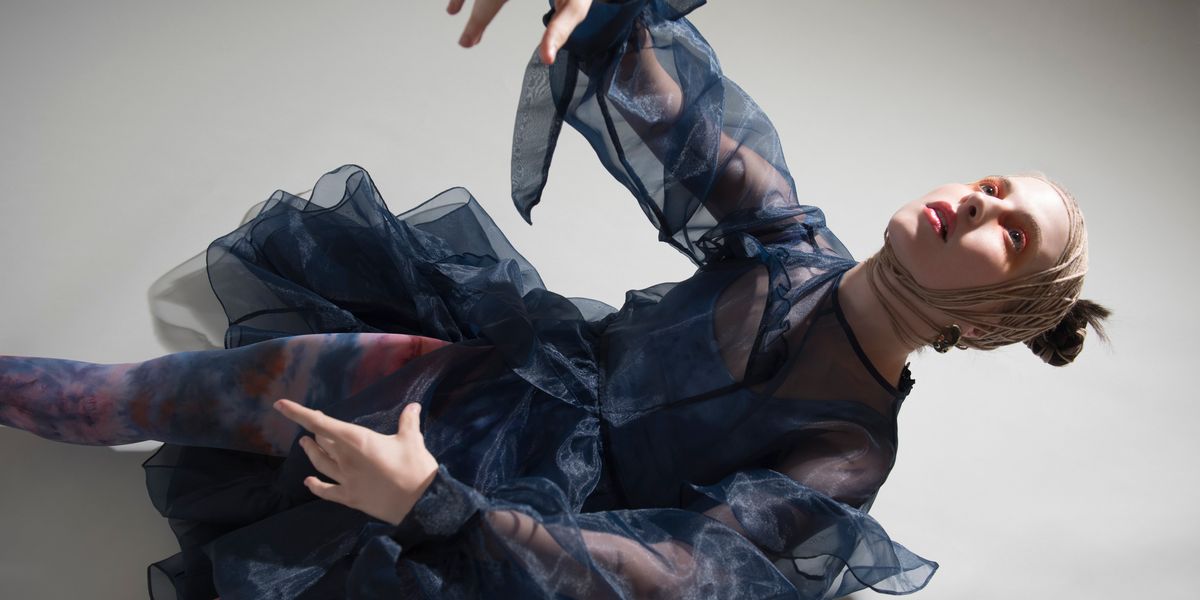
Hayley Williams, who's known for keeping it real despite her massive profile, seems especially down-to-earth on a recent Zoom call (because our lives are all about Zoom now). She's petting her dog Alfie, sitting cross-legged on her couch and talking openly about struggling to have a routine. It's perhaps a strange occurrence for the Paramore frontwoman, who has spent half her life –– since age 16 –– performing and touring sold-out stadiums across the world.
Before we stared at each other through screens 24/7, Williams was prepping yet another major tour to coincide with the release of her solo debut album, Petals For Armor. The day we spoke, she had released "Why We Ever," a wistful groove about learning to love better. More than ever these days, Williams is holding herself accountable, so that she can break bad habits, in love and in life. "I spent the weekend at home again/ Drawing circles on the floor," she sings. "Tried to keep myself from hurting/ I don't know why anymore." Then, a plea: "I just wanna talk about it."
"What are you doing every day to stay balanced?," she asks me. "I'm on an emotional rollercoaster. The days I release a song are the days I have more purpose, it seems."
She's been passing the time with a series of song covers posted online, including Tegan and Sara's "Call It Off," as well as a home workout routine for the shimmering, synth-heavy Petals For Armor standout, "Over Yet." She's also shared some baking content, posting an image of baguette shoes.
I tell her I've been as confused as anyone –– in and out of internal spirals, trying to stay away from too much awful news about rising death tolls without completely avoiding it. Meditation has been a helpful centering tool. She asks me for links.
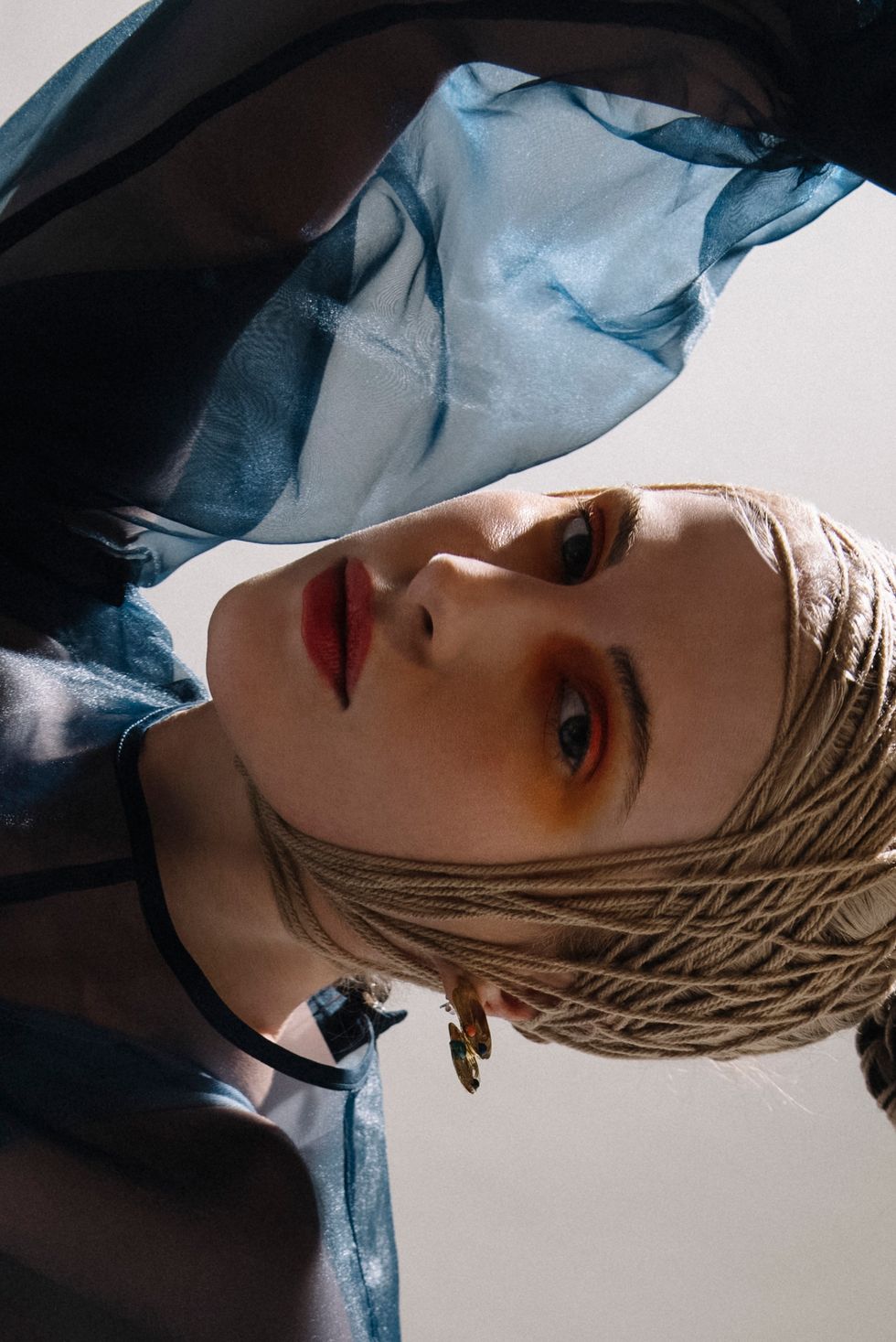
Williams confesses that she's been taking social distancing very seriously, almost to the point of feeling embarrassed to occasionally go to the grocery store. At home, it's just her and her dog and a Netflix queue. The time alone isn't unfamiliar to Williams. A similar kind of insularity informed Williams' creative process for Petals For Armor, which was largely recorded, written and co-produced with Paramore bandmate Taylor York.
"The truth is, I really don't love doing the whole 'writer's room' thing, because it feels like a meeting, you know?" Williams says. "I have a really hard time scheduling creativity that way and I think that artists who do that [are amazing]. [For example], someone who I am constantly blown away by, for her work ethic and her creativity is Charli XCX. She's writing with everybody; she's making a whole record in quarantine right now; she is an endless well of that type of work ethic."
But for Williams, Petals For Armor, which has been released in three stages since March, mirroring the completion of a butterfly's life cycle from its nascent caterpillar stage, happened by accident. "I've never really been able to find it in myself to just schedule or put myself in a new place with new people and make something that really feels authentic to me, so making this record sort of fell from the sky right into my lap," she says.
Related | Charli XCX Is Pop's Cult Leader
Yet, the resulting 16 personal tracks comprising Petals For Armor feel like a catharsis that can only come from an untamed willingness to go deep, despite her own admission of a perfectionistic streak. There's something daring about how gamely Williams delves into her psyche throughout the album, reflecting on everything from righteous feminine rage on smoldering tracks like "Simmer" and "Cinnamon," to unhealthy lust on "Sudden Desire."
The latter track, channeling Björk's industrial Post era highlights Williams' knack for poetry without obscuring her emotions. "Take the elephant by the hand and hold it," she sings. "It's cruel to tame a thing that doesn't know its strength/ But better to walk beside it than underneath." Interestingly, Williams says that recording this song clued her in on how much more she had to say.
Below, Williams opens up about lessons learned from making music as a teenager to now, and creating space for her anger in the #MeToo era. Watch her while she blooms.
Can you talk about the decision to collaborate with only a few people? I'd think for your debut solo album you'd have your pick of any top producer in the world.
Over Paramore's career, there have been multiple opportunities to try and write with major producers. A few years ago, I did a couple writing sessions with Benny Blanco for another artist. I believe we were writing for Gwen Stefani's record at the time. I wish I had a better recollection of those days because I know I was nervous, but he was fun. The truth is, I really don't love doing the whole "writer's room" thing, because it feels like a meeting, you know? I have a really hard time scheduling creativity that way and I think that artists who do that [are amazing]. [For example], someone who I am constantly blown away by, for her work ethic and her creativity is Charli XCX. She's writing with everybody, she's making a whole record in quarantine right now. She is an endless well of that type of work ethic.
I've never really been able to find it in myself to schedule or put myself in a new place with new people and make something that really feels authentic to me, so making this record sort of fell from the sky right into my lap. I was really surprised, but also relieved because it gave me a much needed outlet. There were a lot of uncomfortable moments that challenged me as a writer but doing it with my people, having Joey who plays bass for Paramore be such a big part of the project, and obviously Taylor producing it, it was the way I knew I was going to be challenged because they're great musical partners, but I would also feel comfortable to talk about shit that was really hurting me. I got to write with a couple new characters, Nashville songwriter Micah Tawlks and another being Steph Marziano, who has done a lot of work with Sam Smith, The National and others, who is really talented. Even with the few new folks we brought in, it was meant to be, but I don't feel like that happens to me all the time.
"I have a really hard time scheduling creativity."
Are you afraid of writing "bad songs," or songs you're not proud of?
One major character flaw is that I don't like doing anything I'm not good at. [Laughs] I'd say to myself or to Taylor or Joey: "You really hate it? Good, I'm glad I'm not alone." I pretend to stop myself if I'm writing something I'm not fully in love with, but sometimes I continue just to see what comes out. My phone is full of voice notes dating back to Paramore's last album, After Laughter. Some of it is so embarrassing, yet I don't delete it, which is kind of funny. It's like a diary. But for this solo record, if I started something, typically it meant that I really loved where it was going, and I was following the trail, the crumbs that it was leaving for me until it was finished. I knew it had something to say — that I had something to say. I feel that way about songs: so many times I start writing and I have no fucking clue what I'm going through or what I'm saying, and then the song shows me. That said, there's not to say that there's not a ton of bad shit in my phone. [Laughs] Maybe I'll share them someday for a laugh.
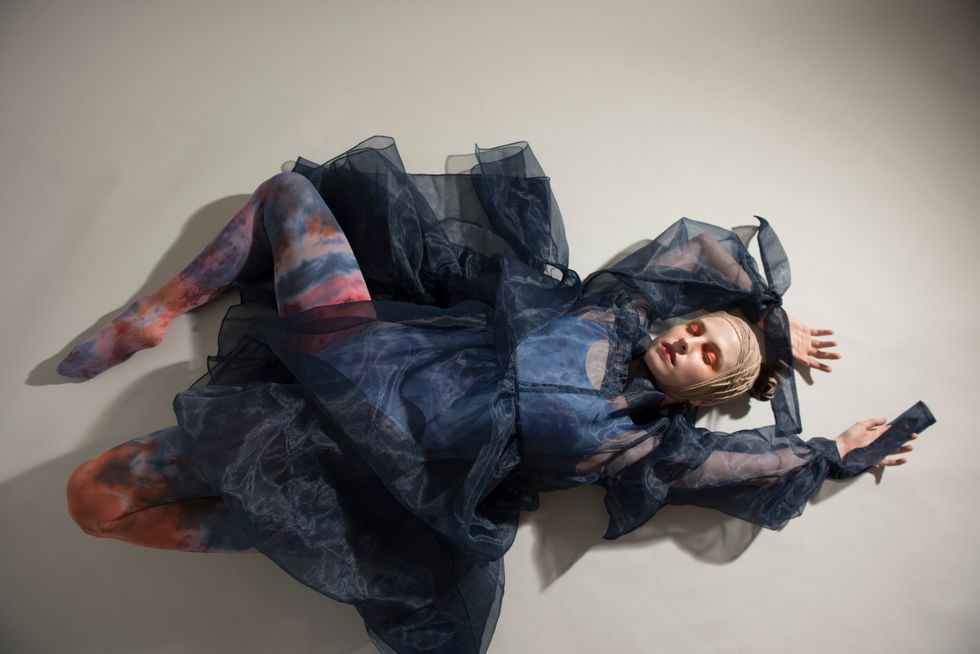
So trusting yourself was key.
Right. There was a point during writing where I realized I was discovering a whole little world within myself. What I'm so used to in the last 16 years of putting out records is this full-circle expression, where you feel something, deny it or maybe accept it, write it down, commit it to memory, record it, release it, tour it. Rinse, repeat. You create this conversation that can be mirrored back to you by people who listen to your music, and that's something you can learn from. I think in a lot of ways it's a selfish expedition, because I tend to deny my own feelings and so much of my self-discovery is through the eyes of real people. Being able to sing it out loud and then hear how that hits other people, how it resonates with them, is what I'm used to. For me, writing and releasing songs can be a twisted form of therapy that's not at all private –– sometimes it's really messy. For this record, this all came into focus by the time we wrote "Sudden Desire." I was like, "OK, this is a record. Here we go."
"There was a point during writing where I realized I was discovering a whole little world within myself."
What were you most nervous about? How did you know you were finished saying what you wanted to say?
I was just going to put out "Leave It Alone" on Spotify and have that be the end of it. Then "Simmer" came, and I was in my comfortable creative flow by this point. But then, as soon as things became official, getting my manager involved and whatnot, is when I started to panic. Taylor just kept saying, "It's already real and you need to accept it." So that's when I came up with the idea of putting songs out in three parts, five songs each, to maybe take a little pressure off. [Laughs]
What do the three parts of the album represent for you?
There was a heaviness to "Leave It Alone," "Simmer" and "Sudden Desire" that I was drawn to. They were darker, heavier sounding and came with more emotional weight than some of the other tracks I'd finished. They fit together and I wanted to put them out in the winter, so that formed Part I. Then, Part II, which has songs like "Why We Ever," is a bit quieter. The way I see it, Part II represents a period of time where you're maybe in between seasons and you're reflecting but anxious. We talk so much about the caterpillar and the butterfly, but all the transformation happens inside the cocoon. The full album is like, I'm going to step out and really put an effort in to heal and to grow and take some big risks.
"We talk so much about the caterpillar and the butterfly, but all the transformation happens inside the cocoon."
"Simmer" is an interesting song to lead the project with. You sing "Rage is a quiet thing," and to match that sentiment, the song builds but never quite boils over. What kind of statement does that song make for you?
I like that it does feel a little shrouded in mystery. I think that being able to open with something like that allows people to engage more and look at you through squinted eyes. Kind of like, what is this? I wanted to leave people scratching their heads a little bit and not understanding where this is going, especially considering that it comes after making After Laughter with Paramore, which had a definitive sound for our band's career. Once that song got written, I thought a lot about rage, specifically feminine rage, and its role in history.
I think it's in everything all the time. That it has propelled us towards a lot of progress as human beings. It fuels justice and can often be a catalyst for goodness in a really shitty world. Growing up, I didn't relate to femininity. I really did not. I always felt more masculine and I felt, especially growing up in the '90s in a small town in Mississippi, it was very binary. You couldn't embody both or a multitude of qualities. As a young girl, I didn't know where to put that. Then obviously, I joined a band with a bunch of guys, and I had a lot of experiences that really influenced the way that I processed my own feminine nature. A huge part of my recent discovery of it was through my anger. In learning how to process my anger, I began to discover what it means for me to be feminine in this world.
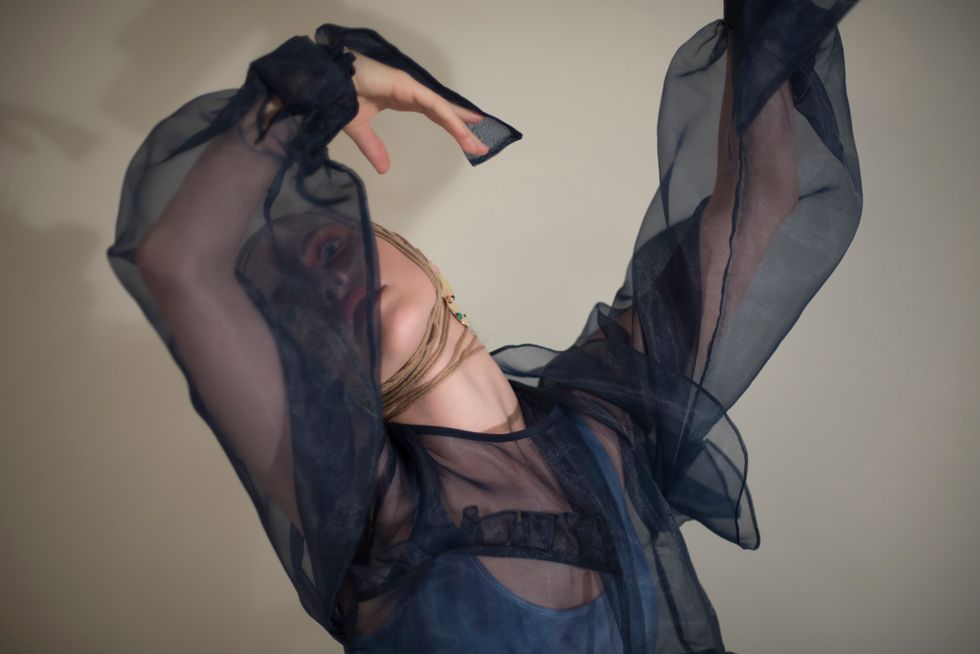
I think we're certainly in a climate for that rage to exist more freely now. Too often, even now, women are told that their anger doesn't have a place anywhere. It's not polite, it's unpredictable...
It's fucked up. But I do have to give a lot of credit to where we're at culturally right now, especially in America. I honestly don't know what it's like to live elsewhere, but at least right now, it seems that there are a lot of people waking up to injustices that are maybe specific to women's experiences. I feel that when the Weinstein case broke, and you also had Handmaid's Tale on television, and a lot of other films and TV that were about revenge and justice, and the main characters driving these stories and these movements toward change have been women. Seeing all that really bolstered my process of trying to heal some traumas of things that I've witnessed and experienced in my life. I also am still realizing the ways that my upbringing and joining a band of just my guy friends from school have influenced how I see myself. I mean, I was 16 and hitting the road and doing things like Warped Tour, men everywhere.
I don't think I could ever fully process exactly what those moments have felt like. I could only be in my body, looking out from my eyes. Now, in hindsight, I go back to some of those memories and I'm like, Oh fuck, no wonder there was so much internalized misogyny that you embodied and that you released through songs like "Misery Business" or whatever.
I was part of a specific type of man's world, and that's just the way that I processed things. Now I can go back and say when 20-something-year-old men would yell, "Take your top off," at a 16-year-old person, I'd yell back at them. I was feisty. I'm really proud of that teenage me, but also, I didn't have the wherewithal to actually process that those instances weren't right. Like, if that shit happened to my 16-year-old sister right now, I'd throw hands in a minute. Trust. It's not cool. I'm thankful so many of us are waking up now, even if we've been hardened to accept these things as normal.
"In learning how to process my anger, I began to discover what it means for me to be feminine in this world."
Going back to the album, the visuals are so striking. For example, I was living for how you performed choreography in "Cinnamon." So the project as a whole, from music to imagery, was a process of expansion for you.
Thank you so much! I mean, I had not danced in so long. I danced as a very young person, because of course growing up, I wanted to be like Missy Elliott.
Who didn't?
I mean, really. She was so fucking cool. She was one of those people when I was living in Mississippi, a bleak place to grow up in, I felt like watching her videos on MTV was watching a window into outer space. Right after that I moved to Nashville and I obviously joined Paramore, and my musical landscape shifted out more. My mind opened up to this other type of music, but I never lost my fascination with dance and with beats, which doesn't necessarily fit in an "alternative" community. Growing up, I was obsessed with Aaliyah, as well. When she died, I lost myself. Obviously anyone who listened to Missy was going to listen to Aaliyah at some point.
So, that was a really big part of the very earliest moments for me where my eyes were wide open to music and what you could do. I was just like, Please for the love of God let me make music and get out of this town. I was only eight or nine years old, so I just think it was meant to happen. I think that something was just put in my heart at a really young age to get out into the world where there were other types of people and there were other things going on besides this tiny little bubble I was in. I think I got back to that childlike curiosity on this album, and yes, dancing was very much part of it. For "Cinnamon," I DM'd Parris Goebel and was like, "Please help me out." [Laughs] Mind you, she was in the middle of helping J. Lo for her Super Bowl Halftime Show, no big deal. But Parris got me to start dancing for fun again.
"I think I got back to that childlike curiosity on this album, and yes, dancing was very much part of it."
Well, if we're learning anything from this pandemic, it's just that life's so short. Just do what you want.
For real. I hope we come out of this with a new connection to our spirit, because we can't really deny that after a couple of weeks of silence in your home. There's only so much silence in your home; there's only so much FaceTiming, baking shit and even writing songs one can do before you have to just get quiet with yourself. Going forward, I'm interested in seeing how this quietness could be reflected in society.
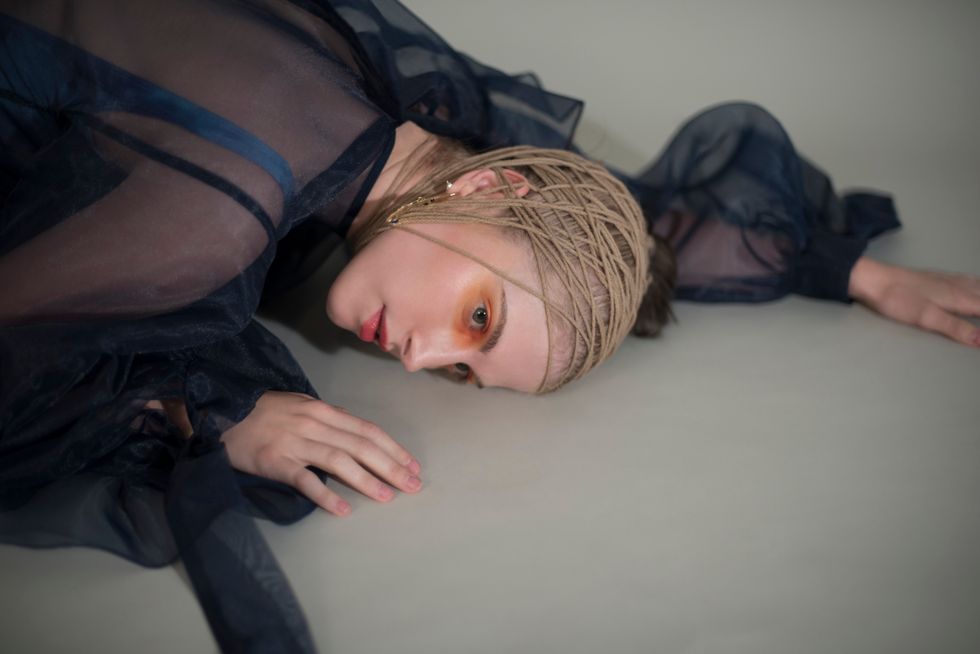
Photography: Lindsey Byrnes
From Your Site Articles
- Watch Kacey Musgraves and Hayley Williams Cover "Girls Just ... ›
- Hayley Williams Releases Single “Simmer” Off Debut Solo Album ... ›
- Hayley Williams on Mental Health: 'I Didn't Laugh For a Long Time ... ›
- Hayley Williams Speaks Out Against Former Paramore Guitarist - PAPER ›
- Paramore's Hayley Williams Writes Letter About Changing Emo Scene ›
- Hayley Williams Reacts to Tennessee Drag Ban, Trans Health Care Bills ›
- Hayley Williams Releases Single “Simmer” Off Debut Solo Album ›
- Hayley Williams on Mental Health: 'I Didn't Laugh For a Long Time' ›
- Chappell Roan Shares "The Subway" - PAPER Magazine ›
Related Articles Around the Web
MORE ON PAPER
Music
Rauw Alejandro: “Music Is My Language, Wherever It Comes From, It Comes From the Heart"
Story by César Álvarez / Photography by Diego Villagra